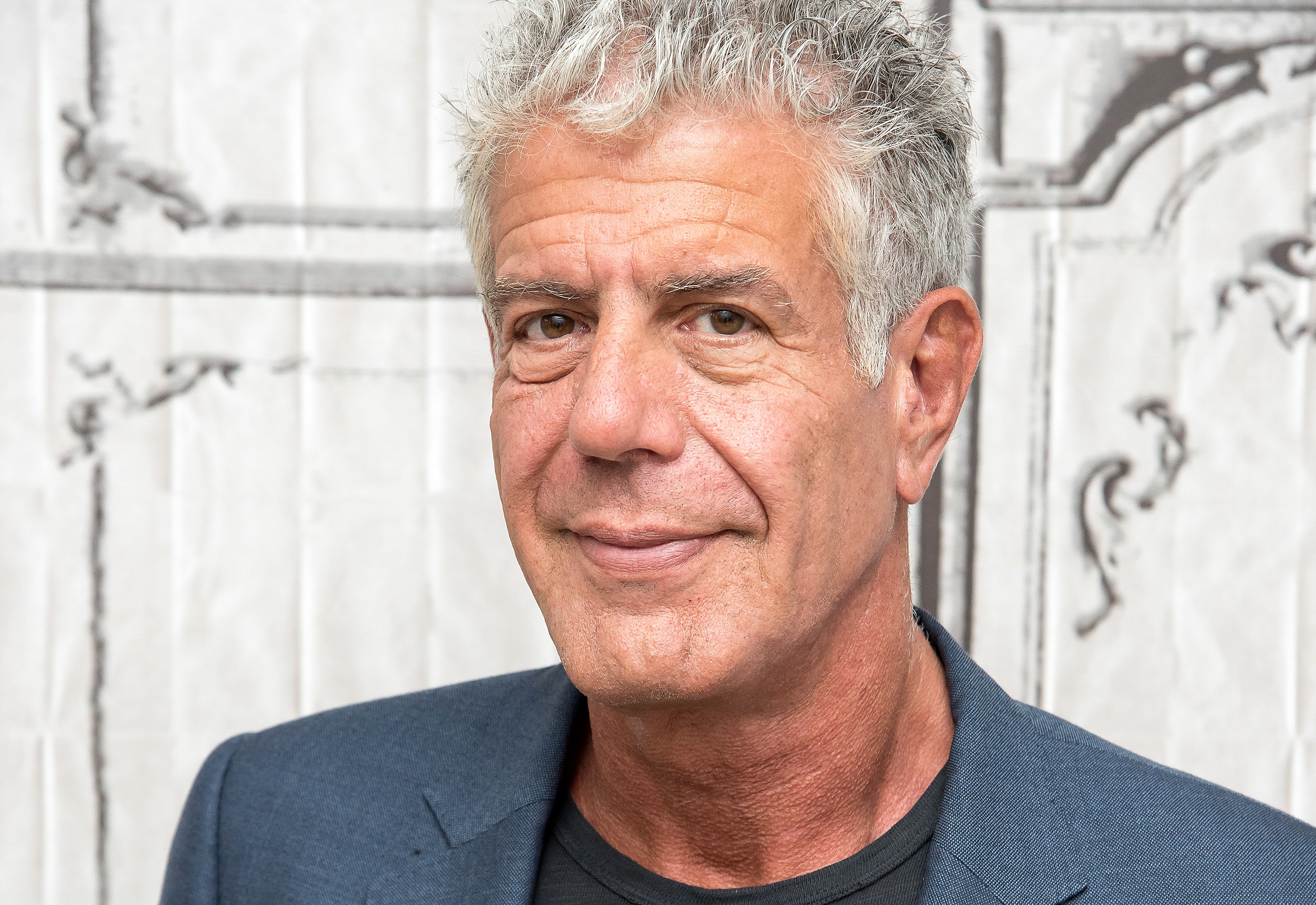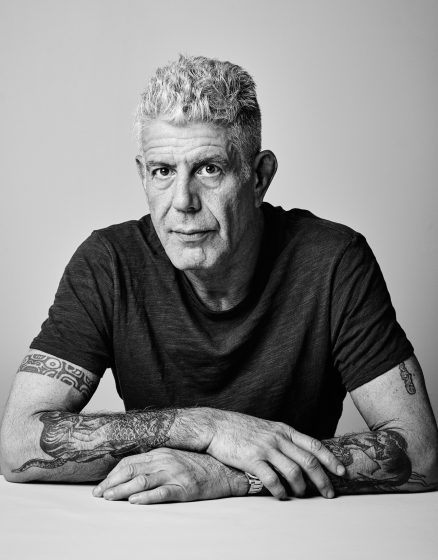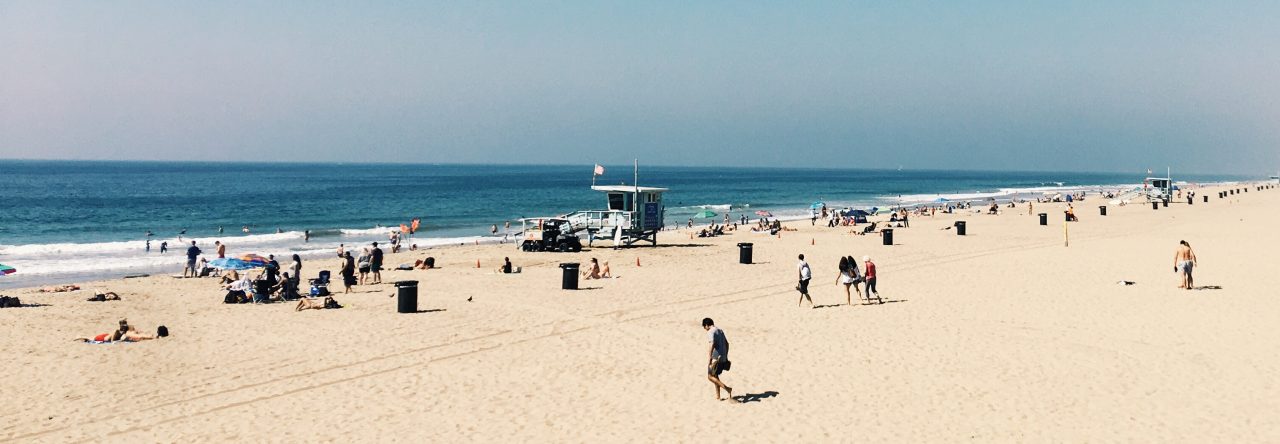IN MEMORIAM

Anthony Bourdain visits the Build Series to discuss “Raw Craft” at AOL HQ on November 2, 2016 in New York City. (Photo by Mike Pont/WireImage)
Anthony Bourdain taught me to look deeper into what I eat, what it says about me, and how to find empathy at the dinner table.
AUTHOR’S NOTE: This post originally appeared on an earlier iteration of this blog and was published on June 3, 2012. Today (June 8, 2018), news broke that Anthony Bourdain was found dead in France of an apparent suicide.
Anthony Bourdain’s No Reservations has long been a favorite show of mine. It’s one of the few television series that has earned the “season pass” setting on my DVR, which means I’ve instructed the Great TV Wizard who lives in the satellite box below my wide screen to seek out every new episode he can find and bring it back for my own viewing pleasure. I love the Great TV Wizard.
All of that’s about to change, though. Bourdain, who has been the darling child of the Travel Channel since his show broke out in 2005, has been poached by (of all channels) CNN. Travel didn’t renew No Reservations. Anderson Cooper snagged him. Even good things come to an end.
What I have long appreciated about Bourdain’s show is his thesis statement that food is a cornerstone of humanity. I saw it in the very first episode I stumbled upon, in which Tony toured Jamaica. What we eat, how we eat it, where we eat it, and with whom we eat it speaks volumes about who we are.
With that as his bottom line, Bourdain has set off around the globe, stopping to take in the sights on nearly every continent. This is mostly a show for Americans to discover other places, but on several occasions, the production team has roamed through American towns and cities, too.
The show in Jamaica grabbed me immediately because I realized that what Bourdain was doing was to walk right by the seaside resorts–the places the Samantha Browns of the world might film from poolside–and then keep walking another ten blocks to the place where all the people who worked at those resorts lived, wandering into their modest or diminutive houses, and talking to them. He asks them questions about their lives. He asks them what to eat.
He also has a knack, shown in every episode, for uncovering how people drink, too. Apart from his visits to Saudi Arabia and Iraq (and I might be leaving out a couple), nearly every show features multiple scenes of Bourdain imbibing something. When he shows up in Russia or central Europe, it’s nearly always grain alcohol, and he is a drinking beast.
The episodes become more and more beautiful with every season–evidence that the Travel Channel realized the jewel in their programming and pushed more money into No Reservations’ production value. If you see the episode from Cuba, be sure to watch it. You’ll rarely see prettier television.

I’ve watched this show for years now, and over time I’ve totally bought into Bourdain’s thesis. I’ve tried to use it as a lens for when I travel, even though my trips are all in the United States, even though when I’m looking for a good, local place, I have to drive past a thousand Applebees. When I’m on the road, I always ask for local beer. I try to find out what makes sense on the menu in regard to where I am. When I’m in Portland, Maine, I know I ought to be eating something from the sea. When I am in Chicago, I ought to be eating something from the cow. When I am in Seattle, I ought to be eating, eating, eating.
And here, even, where I live, I’ve tried to pay attention to what it is we do so well, and what that means about us. I’ve always appreciated that Bourdain, the foodie, the chef, the value-maker, has no better meal in mind than pig. He’s even mentioned on his show that if he had one meal left to eat, he’d probably go for pork barbecue–and the best place to find that is in North Carolina.
It’s true–barbecue is one of the best things we can do here. But there are others. Oh, there are others. One of the best places to find them is the Sunday dinner table.
Roast. Cornbread. Greens. Beans. Pie. Mashed potatoes whipped with cream. Biscuits. Everything homemade, everything an expression of care and deliberation. Southern cooking doesn’t happen carelessly.
Pinto beans are poor man’s food, but with a ham hock, and a day to stew, and a little spicy relish to put on top, they are a fine meal for anyone.
There is nothing better than a tomato from the garden, a lather of mayonnaise, and soft, white bread.
Squash and okra, when battered and dropped into a cast iron skillet full of grease, turn into grace.
Pork tenderloin, on a rotisserie, is to die for. Chicken, battered and fried, is euphoric.
I know, I know–I’m painting with the same buttery acrylic that nearly sent Paula Deen to her grave. There’s a good portion of healthy eating, too.
But I can’t say enough of what’s Southern, what’s true to this place, what’s true to the people who are of this place. I spent a lot of time growing up here plotting my escape, looking for the pathway that would take me far away from this heart of darkness and into the light of true civilization.
What I never expected, though, was to find so much to celebrate about my home. Yes, there’s still darkness, and yes there’s still work to be done. But at least in terms of food, and especially the community that it enshrines, I have found a place worth being.
In part, I have Anthony Bourdain to thank for such a revelation.
Further reading and listening:
“Anthony Bourdain’s Moveable Feast” – Patrick Radden Keefe, in the New Yorker. Keefe was interviewed today by NPR’s Steve Inskeep regarding Bourdain’s death.
NPR’s Dave Davies interviewed Bourdain for Fresh Air.
Another from New Yorker: Helen Rosner’s “Anthony Bourdain and the Power of Telling the Truth“
A New York Times obituary for Bourdain. Frank Bruni’s “The Insatiable and Unknowable Anthony Bourdain.”






Jenneffer Sixkiller
Super thesis. I, too, loved Bourdain ‘s writing about travel and cooking, and his show No Reservations. Thank you for sharing this.